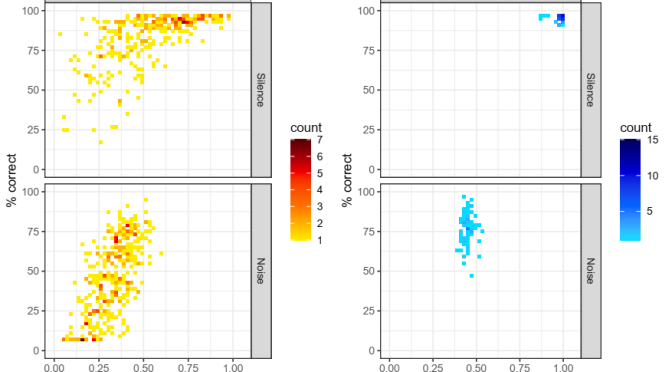This project investigates sensorineural hearing loss, which is primarily associated with a reduction in auditory sensitivity, causing sounds to become less audible or even inaudible. While hearing aids can amplify sounds to restore audibility, they often fail to fully address the challenges faced by individuals, particularly in noisy environments. This is because sensorineural hearing loss can involve suprathreshold deficits, such as , reduced ability to process fine acoustic details, and difficulties in sound segregation.
In this project, we aim to explore the prevalence and underlying mechanisms of these suprathreshold deficits. By combining advanced psychoacoustic methods (such as ), theoretical knowledge on phoneme-in-noise perception, and , we seek to uncover how these deficits impact speech perception. Our long-term goal is to translate these insights into
A key aspect of this project is understanding the interindividual differences among hearing aid users. Even with similar degrees of hearing loss, individuals can exhibit vastly different listening strategies, perceptual abilities, and adaptation to hearing aids. These differences can be influenced by factors such as age, duration of hearing loss, cognitive abilities, and even prior auditory experience. By studying these variations, we aim to uncover why some individuals adapt more successfully to hearing aids than others and how personalized solutions can be developed to better meet their unique needs.
Administrative details
Collaborators: Cyrille Coudert, Christian Lorenzi, Christine Petit
Fundings:
Collaboration with Starkey Hearing Technologies (2018-2019)
Collaboration with Audika France (2023-…)
Institut Carnot Cognition grant (2025-2026)
Selected publications and presentations:
Scientific outreach:
Présentation à la Journée Nationale de l’Audition (2021, Paris) « L’audioprothèse parfaite existe-t-elle ? » (slides)
Sur ce blog :

